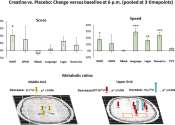No-sleep challenge: The dangers of sleep deprivation
Most of us will be all too familiar with that dopey, groggy feeling of being tired after a restless night. Some social media users have taken tiredness to the extreme, however, by taking part in what they call a "no-sleep ...
Sep 11, 2024
0
0









